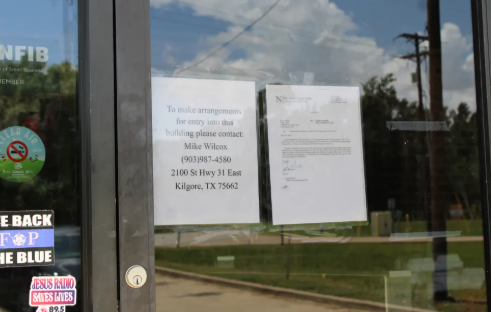Tips for surviving the holidays scam-free
Published 9:16 pm Saturday, November 14, 2015
Every year, thousands of shoppers fall victim to the holiday deals which seem too good to be true, and the bogus charity pleas that pull at the heart strings. As many begin to make their holiday gift list and charity donations, unscrupulous scam artists are gearing up to deck the halls with their tried and true holiday scams. BBB urges consumers to take the following tips into consideration before doing their holiday shopping and making charity donations:
Always check a business’s BBB Business Review, at bbb.org, before making a purchase in the store or online. Make sure that the company has a physical address and telephone number. When shopping online, some websites offer items prices that are too good to be true. Every holiday season, BBB hears from holiday shoppers who paid for a “great deal” online, but received little or nothing in return. This goes for social media as well.
Trending
Don’t let yourself get bogged down in purchases or lose track of your wallet. While you’re struggling with bags of presents, identity thieves may see an opportunity to steal your wallet or look over your shoulder to copy your debit or credit card numbers. Know where your credit and debit cards are at all times and cover the keypad when entering your PIN while purchasing items or getting money from an ATM.
Always research charities with BBB before you give to see if the charity meets BBB’s 20 Standards for Charity Accountability. The holidays are a time of giving, and that creates an opportunity for scammers to solicit donations to line their own pockets. Beware of solicitations from charities that don’t necessarily deliver on their promises or are ill-equipped to carry through on their plans. Resist demands for on-the-spot donations. Up-to-date reports on local and national charities are available at give.org. You can also download a copy of our 2015 Holiday Giving Guide by going to bbb.org/east-texas.
Don’t click on any links or open any attachments to emails until you have confirmed that they are not malicious. Phishing emails are a common way for hackers to get at your personal information or break into your computer. Email addresses that don’t match up, typos and grammatical mistakes are common red flags of a malicious phishing email. Make sure you have current antivirus software and that all security patches have been installed on the computer.
Watch for scam emails disguised to look like attempts to deliver a holiday package to your door. Emails may claim that a delivery company made one or more unsuccessful attempts to deliver a package, and will contain a link to what may appear to be an invoice or shipping document. However, by downloading the link or opening the attachment, you also download a virus which could allow cybercriminals to extract personal and financial information.
For more holiday tips that you can trust, visit bbb.org. To report fraudulent activity or unscrupulous business practices, call the BBB Hotline: 903-581-8373 or go to BBB Scam Tracker.







